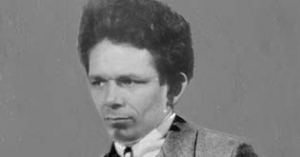Gallery
All Pictures (4)Biography
Phil Jutzi was born Philipp Jutzi on July 22, 1896 in Alt-Leiningen near Grünstadt/Pfalz to Peter Jutzi, a master tailor, and Anna Katharina Jutzi, née Friedrich. After completing the seventh grade of elementary school, he attended an arts and crafts school for two years. At the age of twenty he earned his first money as a poster painter for a small cinema in the Black Forest and made his first attempts at photography with the cinema owner's camera. During World War I, Jutzi was unfit for service and assigned only to "auxiliary duty."
In the early 1920s, Phil Jutzi changed his first name to Piel. However, in 1931 he lost in a lawsuit for name similarity against the actor and director Harry Piel. In his further works Jutzi appeared again under the name Phil.
In 1919 Phil Jutzi moved to Heidelberg, where he worked as a cinematographer, director and screenwriter. "Das blinkende Fenster" (1919) was his first directorial work for the Internationale Film-Industrie GmbH, which mainly produced detective and wild west films. Other films followed, such as "Bull Arizona der Wüstenadler" (1919) and "Der Fremde mit der Teufelsmaske" (1920).
Jutzi's next stop was Berlin. There he had contact with the International Workers' Aid (Internationale Arbeiterhilfe, IAH) and recorded current events as a cameraman for the communist film cartel Welt-Film. After the founding of the proletarian Prometheus Film-Verleih und Vertriebs GmbH, he became a director there. Initially, Jutzi created documentary films.
In 1926, he directed the feature film "Kladd und Datsch, die Pechvögel". Prometheus started to increasingly distribute Russian films. Among other things, Jutzi was responsible for the production of German distribution versions, Eisenstein's "Bronenosec Potemkin" ("Battleship Potemkin," 1925) being the most famous title. It was also Jutzi who reedited the film in 1930 and created the first sound version. He was involved in the German-Russian co-productions of Prometheus as cinematographer on "Falschmünzer" ("Salamandra," 1928) and "Der lebende Leichnam" ("Zhivoj Trupp," 1928).
In the mid-1920s Phil Jutzi became the leading director of 'proletarian' cinema. In 1928 he directed the semi-documentary feature film "Um's tägliche Brot (Hunger in Waldenburg)" ("The Shadow of a Mine") from a screenplay by Léo Lania. Participants were amateur actors and Holmes Zimmermann, Jutzi's brother-in-law, with whom he had already made a film at the Internationale Film-Industrie GmbH (Heidelberg) and who can also be seen in "Mutter Krausens Fahrt ins Glück" ("Mother Krause's Journey to Happiness"). The film "Um's tägliche Brot" drew a realistic picture of the misery in the coal-mining area of Waldenburg. The reactions to the film were almost universally positive. There was some criticism that it showed the misery in a fatalistic way and that there was no way out.
The next and by far the greatest artistic and commercial success for Prometheus was "Mutter Krausens Fahrt ins Glück" in 1929. With only limited financial means and under the protectorate of Käthe Kollwitz, Hans Baluschek and Otto Nagel, Jutzi succeeded in portraying types and a milieu of the proletariat. Socially critical and without pathos, he filmed the streets of Berlin with his camera. Siegfried Kracauer wrote in the Frankfurter Zeitung of January 28, 1930: "But unlike others, he didn't just copy the Russians' outward appearances, but really learned from them. His shots of streets, houses and courtyards are magnificent, his transitions factually justified."
Jutzi was critical of the introduction of sound film and called for an end to the "tyranny of sound". The planned 1930 film version of Anna Seghers' "Aufstand der Fischer" with Asta Nielsen could no longer be realized by Jutzi with Prometheus. Prometheus had made a financial profit on "Mutter Krausens Fahrt ins Glück", but old debts had to be settled. Phil Jutzi, who had previously worked under poor pay, had to abandon his plan. His most productive artistic creative phase was thus coming to an end. Jutzi resigned from the KPD at the end of 1929.
In 1931 he made "Berlin - Alexanderplatz" ("Berlin-Alexanderplatz: The Story of Franz Biberkopf") with Allianz Tonfilm GmbH, based on the novel by Alfred Döblin, with Heinrich George as Franz Biberkopf. The film again clearly criticized the prevailing social conditions, but was not comparable in its expressiveness to "Mutter Krausens Fahrt ins Glück". Critics were not convinced.
Not only did his films significantly changed in the 1930s, Jutzi also reoriented himself politically. In March 1933, he joined the Nazi party NSDAP and subsequently joined the National Socialist Operational Organization/Film (NSBO) in May. In the same year, his films "Um's tägliche Brot" and "Mutter Krausens Fahrt ins Glück" were banned by the censors. Phil Jutzi's works in the years 1933 to 1937 were mainly short entertaining feature films, comedy films for the producer Kurt Ulrich. He made over ten films for Euphono-Film in the same years. In 1934 and 1935 Jutzi had the opportunity to direct two long feature films in Austria with Atlantis-Film. One was "Lockspitzel Asew," a story about a traitor; the other was a spy melodrama, "Der Kosak und die Nachtigall."
In the 1940s, Jutzi's financial situation worsened, compounded by health problems. In 1942, he held a permanent position with the Reichspost-Fernseh-Gesellschaft as chief cameraman and worked in this capacity for Lex Film and Ufa, among others. However, due to his health situation, Jutzi was hardly able to pursue this activity; his high level of debt and an illness of his wife, Emmy Philippine, née Zimmermann, also put him under strain. After the end of the war, he went back to his home in Altleiningen with his wife and daughter Gisela, born in 1926. The financial situation remained difficult.
Phil Jutzi died on May 01, 1946 in the hospital of Neustadt an der Weinstraße.
